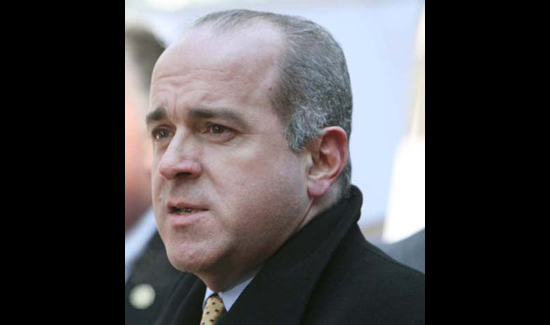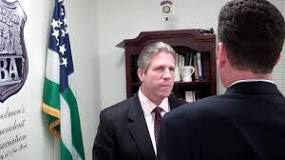NYPD Union Leaders Demand State Declare Moratorium
Leaders of two of New York City’s largest police unions have called upon the state to declare a moratorium on municipal laws affecting police policy—an apparent effort by the unions to block “police reform” legislation favored by the Progressive Caucus that dominates the City Council.
Testifying before a joint session of several committees of the Republican-controlled State Senate, President Patrick Lynch of the Patrolmen’s Benevolent Association and President Edward Mullins of the Sergeants Benevolent Association called upon the state to block local governments from passing legislation on criminal justice and police procedure. The union heads asserted that the state has historically set the guidelines for law enforcement through the New York State Criminal Procedure Law and argued that cities are creating conflicting and unfair new rules outside of their power.
“What we have seen recently is an attempt by some local governments to usurp the state’s traditional role,” Mr. Lynch testified. “Important issues of criminal justice deserve more careful, deliberate, and reasoned consideration, and we believe that the legislature’s statewide purview leaves it better equipped to play that role.”
Council members last year unveiled proposals that would make it illegal for police officers to utilize a chokehold maneuver and that would require officers to request permission before performing a search—both of which Mayor Bill de Blasio has said he opposes. Mr. Mullins and Mr. Lynch reserved most of their ire for the 2013 law which allowed civilians to sue officers who stopped them for racial discrimination, which the unions have unsuccessfully sought to overturn in the courts.
“Local governments are trying a run-around,” Mr. Mullins argued. “Duplicative and dangerous regulation that is inconsistent with statewide laws. Any local regulation that holds police liable or makes their jobs harder can in turn make local communities less safe and the state should closely monitor the use by local governments and local law that undermine state prerogatives.”
Mr. Lynch repeatedly noted that his union opposed quota-driven use of the stop-and-frisk tactic, but opposed the law because it made officers individually liable for violations. He would not specify which proposed new city statutes he hoped to see blocked.
“At this point, it’s a number of bills, and also the policies as well that are affecting how police officers do their job. The racial profiling and a number of packages that are coming from the City Council, and other places, it’s not just restricted to the City Council,” he told reporters after leaving the hearing.
















